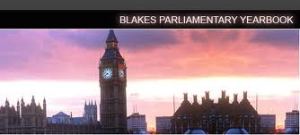 To mark 60 years of The Queen's reign the Parliamentary Information Office of the Parliamentary Yearbook is, in common with the whole of the country, celebrating her Diamond Jubilee. This brief report gives a flavour of the events that have taken place, events that have gripped the nation.
60 years of The Queen's reign
To mark 60 years of The Queen's reign the Parliamentary Information Office of the Parliamentary Yearbook is, in common with the whole of the country, celebrating her Diamond Jubilee. This brief report gives a flavour of the events that have taken place, events that have gripped the nation.
60 years of The Queen's reign
The Queen came to the throne on 6 February 1952 and her coronation took place on 2 June 1953. She celebrated her Silver Jubilee (25 years) in 1977 and her Golden Jubilee (50 years) in 2002.
The only other British monarch to celebrate a Diamond Jubilee was Queen Victoria in 1897.
Bank holiday
A special bank holiday for the Diamond Jubilee took place last weekend. The 2012 late May bank holiday was moved to Monday 4 June 2012 and an additional Jubilee bank holiday was celebrated on Tuesday 5 June 2012.
School closures
Schools in England and Wales closed on Tuesday 5 June 2012 for the Diamond Jubilee celebrations. Schools that were already closed on 5 June for half term or another reason were able to close on a different day.
Regional and overseas visits to mark the Diamond Jubilee
The Queen and the Duke of Edinburgh will be visiting England, Scotland, Wales and Northern Ireland in 2012 to mark Her Majesty’s Diamond Jubilee.
Other members of the Royal Family will also travel throughout the United Kingdom and overseas next year. Further information is on the British Monarchy website.
National events to celebrate the Diamond Jubilee
A Diamond Jubilee Pageant took place at Windsor Castle in May 2012. Buckingham Palace coordinated a programme of events over the long weekend, including:
• Big Jubilee Lunches. The Big Lunch is a very simple idea from the Eden Project. The aim is to get as many people as possible across the whole of the UK to have lunch with their neighbours in a simple act of community, friendship and fun. Last year on Sunday 5th June the best part of two million people took part in The Big Lunch. In 2012 The Big Lunch fell on the same weekend as The Queen's Diamond Jubilee celebrations on Sunday 3rd June and as announced by Buckingham Palace
The Big Jubilee Lunch was a part of the main programme of events over the central weekend of the Diamond Jubilee.
• The river pageant on the Thames. On Sunday 3rd June millions of people braved the weather to line the banks of the river Thames to pay tribute to Her Majesty The Queen - and to watch the 1,000 boat, seven-mile flotilla between Battersea and Tower Bridge. Lord Salisbury, Chairman of the Thames Diamond Jubilee Foundation, said: "We would like to extend our thanks and appreciation to Her Majesty The Queen, the other members of the Royal Family and of course all those people who braved the elements to come out to enjoy our Pageant. We hope it was a fitting tribute to 60 years of service. I would also like to pay tribute to our Pageant team. It was a triumph of their professionalism and years of hard work." The flotilla’s jewel in the crown was the Royal Barge -
Spirit of Chartwell - which was decorated with over 10,000 blooms, and carried The Queen, The Duke of Edinburgh, the Prince of Wales, the Duchess of Cornwall, the Duke and Duchess of Cambridge and Prince Harry
• The concert at Buckingham Palace. A host of stars performed at the Queen's Diamond Jubilee Concert in front of members of the royal family and thousands of fans. Opening performer Robbie Williams dropped to his knees on the stage built around the Queen Victoria Memorial, outside Buckingham Palace, and declared: "Let me entertain you." Although Prince Philip missed the festivities after being taken to hospital due to a bladder infection, other members of the royal family applauded the singer from a VIP stand adjacent to Green Park. Thousands of people waved Union flags as comedy actor Rob Brydon officially welcomed all those watching near the palace or at home on television. Performers included Sir Paul McCartney, Sir Cliff Richard, Sir Elton John, Grace Jones and Shirley Bassey
• At the end of the concert Her Majesty was then escorted to the stage by Prince Charles to light the last of more than 4,200 beacons - located across Britain and the Commonwealth - to mark her 60-year reign. Before the lighting, Prince Charles made an emotional speech to "Mummy" and remarked about how the weather had improved since the previous day.
• Then on Tuesday 5th June the Royal Family dined on a right royal feast of delicacies at a prestigious luncheon held at the Palace of Westminster. The Queen was joined by Prince Charles and his wife Camilla, Duchess of Cornwall, the Duke and Duchess of Cambridge and Prince Harry. The Duke of Edinburgh, Prince Philip, did not attend as he was being treated in hospital for a bladder infection.
The prestigious lunch was hosted by the Livery, and Her Majesty was joined by around 700 guests made up of people from around the country whose trade, craft or procession is represented by one of the many different liveries taking part in the event. This includes grocers and gunmakers to fruiterers and fishmongers. The guests dined on a selection of delicious British fare including Welsh mountain lamb, Uist Island salmon, and Isle of Wight asparagus. The Queen travelled to the lunch, staged in Westminster Hall, following a reception at Mansion House, while Prince Charles, Camilla, Prince William and Kate, and Prince Harry travelled from another reception held at Guildhall. Earlier in the day they attended a service of Thanksgiving at St Paul's Cathedral
• Away from the official Jubilee celebrations, hundreds of thousands of ordinary folk both in the UK and across the Commonwealth and indeed the world celebrated with street parties and informal celebrations. The bunting and union flags were proudly displayed in streets all over the country as a nation in unison paid homage to our monarch
• Even after the bank holiday and a hectic weekend, the Queen still showed no signs of slowing down as she attended a lunch with Commonwealth heads of state on 6th June. Looking impossibly fresh faced and elegant in purple jacket and floral dress by Stuart Parvin, the monarch displayed yet again the strength, stoicism and enduring energy that has won back the nation's affection over the past year. She was joined by more than 70 guests and leaders from across the association of nations, including Prime Minister David Cameron and his wife Samantha.
City status and Lord Mayoralty
As part of the celebrations, towns in the UK will also compete for city status and existing cities will compete for Lord Mayoralty (or Lord Provostship in Scotland). These will be granted by The Queen in her Jubilee year.
In London, Greenwich will be granted Royal Borough status in recognition of the historically close links between Greenwich and the monarchy. Like city status, Lord Mayoralty or Lord Provostship, this is a purely symbolic award and brings no extra powers, functions or funding.
Exhibitions and projects
A number of exhibitions and projects are being planned across the UK to celebrate the Diamond Jubilee.
Museums and galleries
In 2012 the Royal Collection will hold exhibitions at Buckingham Palace, Windsor Castle and the Palace of Holyroodhouse and elsewhere in the United Kingdom to mark the Diamond Jubilee.
The National Maritime Museum will open 'Royal River: Power, Pageantry and the Thames' in April 2012. It will explore the relationship between the Queen, the City of London and the River Thames.
The National Portrait Gallery will also stage ‘The Queen: Art and Image’, a touring exhibition of images of the Queen.
The Victoria and Albert Museum is holding an exhibition of portraits of The Queen by photographer Cecil Beaton, which will tour around the UK.
Charities
A new charitable Trust, 'The Queen Elizabeth Diamond Jubilee Trust', has been launched. Members of the public are welcome to make contributions.
In November 2010 the Big Lottery Fund launched the Jubilee People’s Millions Competition. This will grant £3.6 million in award money to local community projects. The winning projects were announced in July 2011.
Environmental projects
The Jubilee Woods Project was launched by The Woodlands Trust in February 2011. It will create a 460-acre public wood in Leicestershire to celebrate the Jubilee and also aims to plant six million trees across the UK, creating hundreds of new woodlands. As part of this project, 60 ‘Diamond Woods’ of at least 60 acres each will be planted to mark each year of the Queen’s reign. The planting began in autumn 2011 and runs to the end of 2012.
Fields in Trust has launched the Queen Elizabeth II Fields Challenge to protect recreational spaces for the Diamond Jubilee.
Digital projects
The Royal Commonwealth Society has organised a special Jubilee Time Capsule, a digital archive of The Queen’s reign. You can contribute to this by picking a day and adding your memories and stories of that day. You can use photos, words or videos and talk about anything you want.
Face Britain is a project created by The Prince's Foundation for Children & the Arts for children and young people aged 4-16 in the UK. You will be able to create a self-portrait and see it on public display as part of the celebrations.
Official medal
An official medal has been commissioned to mark Her Majesty The Queen's 60 years on the throne.
Those in the Armed Forces, emergency services and prison service personnel, are among those eligible for the Queen's Diamond Jubilee Medal.
Diamond Jubilee emblem and titles
The Jubilee emblem was chosen after a national competition for children aged between 6 and 14. The winning design is 10-year-old Katherine Dewar's, from Chester.
The Queen’s Diamond Jubilee Message
Her Majesty The Queen has thanked all those involved in her Diamond Jubilee celebrations in a televised broadcast on the final day of the Diamond Jubilee Weekend celebrations.
“The events that I have attended to mark my Diamond Jubilee have been a humbling experience. It has touched me deeply to see so many thousands of families, neighbours and friends celebrating together in such a happy atmosphere.
“But Prince Philip and I want to take this opportunity to offer our special thanks and appreciation to all those who have had a hand in organising these Jubilee celebrations. It has been a massive challenge, and I am sure that everyone who has enjoyed these festive occasions realises how much work has been involved.
“I hope that memories of all this year’s happy events will brighten our lives for many years to come. I will continue to treasure and draw inspiration from the countless kindnesses shown to me in this country and throughout the Commonwealth. Thank you all.”
The staff of the Parliamentary Information Office of the Parliamentary Yearbook join with the rest of the country in congratulating Her Majesty on this momentous occasion and wishing her many more years on the Throne.
This was submitted by the Parliamentary Information Office. For more information visit
Parliamentary Information Office.









